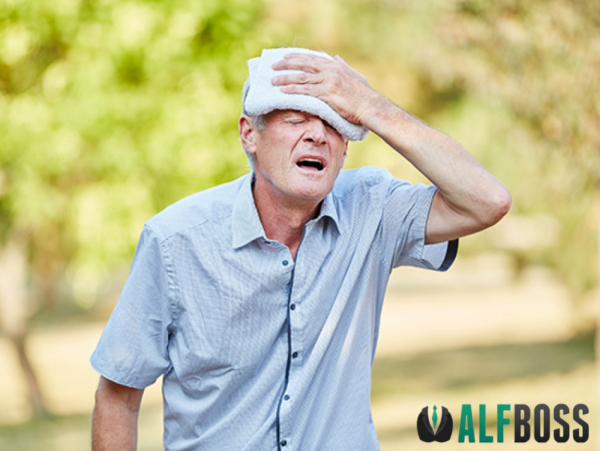
Written by Pascal Bergeron
As the summer heat in Florida reaches its peak, it’s crucial to recognize the unique dangers that come with soaring temperatures, especially for vulnerable populations such as residents in assisted living facilities. Ensuring the well-being of these individuals requires proactive measures to combat dehydration, as they may be more susceptible to its adverse effects. In this article, we will explore the dangers of Florida’s summer heat and emphasize the importance of keeping residents in assisted living facilities adequately hydrated. We will also discuss ways to promote hydration and recognize signs of dehydration.
The Dangers of Florida’s Summer Heat:
Florida’s summer season is notorious for its scorching temperatures and high humidity, creating an environment that poses significant risks to everyone, particularly older adults. Assisted living facility residents are often more susceptible to heat-related illnesses due to factors such as age-related physiological changes, chronic medical conditions, and the use of certain medications. Dehydration is one of the primary concerns during these hot months, as it can lead to severe health complications if left unaddressed.
Importance of Hydration in Assisted Living Facilities:
Maintaining proper hydration is crucial for the overall health and well-being of assisted living facility residents, especially during the summer months. Hydration helps regulate body temperature, aids in digestion, ensures optimal organ function, and supports cognitive function. It also plays a vital role in preventing conditions such as urinary tract infections, constipation, and confusion, which can be exacerbated by dehydration.
Promoting Hydration:
Provide Ample Fluid Options: Assisted living facilities should offer residents a wide variety of hydrating beverages, including water, herbal teas, fruit-infused water, and low-sugar sports drinks. Encourage residents to drink regularly and make beverages readily available in common areas and residents’ rooms.
Regular Hydration Reminders:
Staff members should remind residents to drink fluids throughout the day, as older adults may not always feel thirsty or may forget to drink. Implement a schedule for offering water and other beverages, and ensure that residents have easy access to water pitchers or water bottles.
Nutrient-Rich Foods: Encourage residents to consume foods with high water content, such as fruits (watermelon, grapes, oranges) and vegetables (cucumbers, lettuce, tomatoes). These foods not only provide hydration but also offer essential vitamins and minerals.
Recognizing Signs of Dehydration:
It is crucial for staff members and caregivers in assisted living facilities to be vigilant and watch for signs of dehydration in residents. Some common indicators include:
Dry mouth, lips, and tongue
Dark-colored or minimal urine output
Fatigue, dizziness, or confusion
Sunken eyes or reduced tear production
Dry or cool skin
Rapid heart rate and low blood pressure
Muscle cramps
If any of these signs are observed, it is essential to take immediate action to address the resident’s hydration needs. Encourage them to drink fluids, provide assistance if necessary, and consider involving medical professionals if symptoms persist or worsen.
The summer heat in Florida can pose significant risks to the health and well-being of assisted living facility residents. Recognizing the dangers of dehydration and implementing strategies to ensure proper hydration is crucial for their overall safety. By providing a variety of hydrating beverages, regular reminders, and promoting nutrient-rich foods, staff members and caregivers can help mitigate the risks associated with the scorching summer heat. It is essential to remain vigilant, recognize signs of dehydration, and take prompt action to protect the well-being of our loved ones in assisted living facilities. Together, we can make a difference and ensure a safe and hydrated summer for all residents.